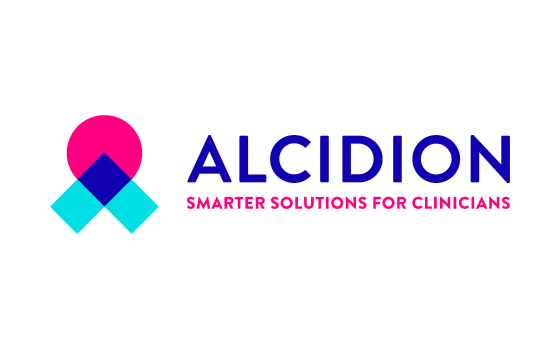 A new type of technology for the NHS is expected to help re-energise the healthcare IT market, following the formal UK launch of Miya Precision by smart health tech company Alcidion.
A new type of technology for the NHS is expected to help re-energise the healthcare IT market, following the formal UK launch of Miya Precision by smart health tech company Alcidion.
Miya Precision integrates information from the healthcare organisation's current systems, uses it to automate routine tasks, care plans and pathways, and overlays existing data with advanced clinical decision support to make otherwise static information clinically valuable.
The new platform, which has been labelled as the very first smart clinical asset for the NHS, will provide hospitals and regions with a means to move beyond static electronic record systems to technology that proactively engages healthcare professionals.
The system will also immediately allow hospitals to realise clinical workflow benefits from clinical noting, natural language processing, electronic observations, electronic prescribing, flow management, mobility and more - to align with their digital strategies.
It will enable the NHS to quickly adopt new and emerging technologies and algorithms, as well as address strategic priorities. For example, integrated care systems are considering Miya Precision as an orchestration layer to join up disparate digital approaches and systems for hospitals across their regional footprint through a single smart interface. The platform does this by converting information in incumbent NHS systems to the FHIR standard - allowing that information to be applied to modern applications and to flow to appropriate users in a region.
Miya Precision has already seen early adoption in the NHS following successful use by organisations in other parts of the world and is expected to add significant value to existing electronic patient record strategies in the NHS. It will act as a core accelerator for trusts pursuing best of breed approaches to digitalisation.
Dartford and Gravesham NHS Trust is the first in the UK to sign up to Miya Precision. Neil Perry, director of digital transformation at the trust, said: "Miya Precision sits at the centre of our digital strategy. It provides a catalyst for us to harness digital technology in ways that allow our clinical staff to make informed decisions more easily, whilst focussing their time and efforts on delivering the best possible patient care and clinical outcomes. It is providing us with a new platform to become digitally mature, whilst leveraging artificial intelligence, natural language processing and many other advanced technologies. I look forward to sharing our approach with more hospitals considering this option."
Lynette Ousby, general manager for Alcidion in the UK, said: "We want to give the NHS a new option when it comes to technology that makes a difference to the way clinicians work. Miya Precision will automate care plans and pathways whilst relieving the cognitive burden still faced by healthcare professionals who very often still need to spend hours each day remembering to carry out hundreds of routine tasks.
"The NHS is faced with the challenge of delivering modern and engaging technology to clinicians whilst still needing to get value from its historic healthcare technologies. We believe we can offer an alternative to unlock that value, to join together systems and expose data in ways that really helps the people delivering care."
Alcidion is currently best known in the UK for its Patientrack early warning and electronic observations system. This system has helped hospitals in different parts of the UK to deliver a significant impact on patient safety by identifying and responding to the sickest patients and those at risk of deterioration. It has, for example, helped hospitals to deliver substantial reductions in cardiac arrests and to tackle deadly conditions including sepsis and acute kidney injury. As a more comprehensive solution, Miya Precision will help hospitals to build on this success and help to take technology adoption and patient safety in the NHS to the next level.
Dr Malcolm Pradhan, chief medical officer, for Alcidion, said: "Around the world the healthcare sector still expects doctors and nurses to perform acts of heroism every day just to get their job done. We believe IT systems should play a more active role in helping clinicians to look after their patients. Smart technology should help with the memory tasks so professionals can spend more time making difficult judgements - and then it should provide clinical decision support to aid in those decisions."
Alcidion Group managing director, Kate Quirke, said: "Formally launching Miya Precision for the NHS presents an opportunity for us to contribute to a history of world class excellence in enhancing patient care. The NHS is already Alcidion’s largest global partner of which we are immensely proud. We now look forward to using our full advanced product offering to help the health service accelerate its use of modern technology to support clinicians delivering care and to drive forward strategic priorities around interconnected and intelligent medicine."
About Alcidion
Alcidion Ltd (ASX:ALC) has a simple purpose, that is, to make healthcare better with smart, intuitive solutions that meet the needs of hospital and allied healthcare, worldwide. Alcidion incorporates three healthcare software companies previously known as Alcidion Corporation, Patientrack and OnCall and MKM Health, an IT solutions and services provider. Each company brings a complementary set of products and skills that create a unique offering in the global healthcare market; solutions that support interoperability, allow communication and task management, and deliver clinical decision support at the point of care to improve patient outcomes. With over 25 years of combined healthcare experience, the Alcidion Group of companies brings together the very best in technology and market knowledge to deliver solutions that make healthcare better for everyone.